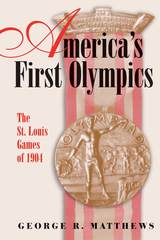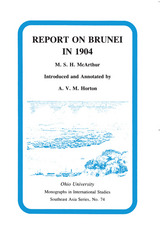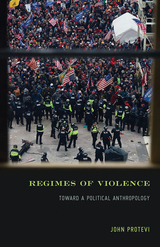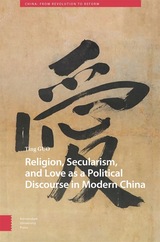2 books about 1904

America's First Olympics
The St. Louis Games of 1904
George R. Matthews
University of Missouri Press, 2005
America in 1904 was a nation bristling with energy and confidence. Inspired by Theodore Roosevelt, the nation’s young, spirited, and athletic president, a sports mania rampaged across the country. Eager to celebrate its history, and to display its athletic potential, the United States hosted the world at the 1904 Louisiana Purchase Exposition in St. Louis. One part of the World’s Fair was the nation’s first Olympic games.
Revived in Greece in 1896, the Olympic movement was also young and energetic. In fact, the St. Louis Olympics were only the third in modern times. Although the games were originally awarded to Chicago, St. Louis wrestled them from her rival city against the wishes of International Olympic Committee President Pierre de Coubertin. Athletes came from eleven countries and four continents to compete in state-of-the-art facilities, which included a ten-thousand-seat stadium with gymnasium equipment donated by sporting goods magnate Albert Spalding.
The 1904 St. Louis Olympics garnered only praise, and all agreed that the games were a success, improving both the profile of the Olympic movement and the prestige of the United States. But within a few years, the games of 1904 receded in memory. They suffered a worse fate with the publication of Coubertin’s memoirs in 1931. His selective recollections, exaggerated claims, and false statements turned the forgotten Olympics into the failed Olympics. This prejudiced account was furthered by the 1948 publication of An Approved History of the Olympic Games by Bill Henry, which was reviewed and endorsed by Coubertin.
America’s First Olympics, by George R. Matthews, corrects common misconceptions that began with Coubertin’s memoirs and presents a fresh view of the 1904 games, which featured first-time African American Olympians, an eccentric and controversial marathon, and documentation by pioneering photojournalist Jessie Tarbox Beals. Matthews provides an excellent overview of the St. Louis Olympics over a six-month period, beginning with the intrigue surrounding the transfer of the games from Chicago. He also gives detailed descriptions of the major players in the Olympic movement, the events that were held in 1904, and the athletes who competed in them. This original account will be welcomed by history and sports enthusiasts who are interested in a new perspective on this misunderstood event.
[more]

Report On Brunei In 1904
Mis Sea#74
M.S.H. Mcarthur
Ohio University Press, 1987
In 1904 the British Protectorate of Brunei had reached the nadir of its fortunes. Reduced to two small strips of territory, bankrupt, and threatened with takeover by the Rajah of Sarawak (Sir Charles Brooke), Brunei received M. S. H. McArthur who was dispatched to make recommendations for Brunei's future administration. As a result of McArthur’s Report on Brunei in 1904, the British government decided to underwrite the separate existence of the sultanate, thus giving a reprieve to the “dying kingdom.” The report is the most important document in the history of modern Brunei and is here annotated and given historical context by A. V. M. Horton.
[more]
READERS
Browse our collection.
PUBLISHERS
See BiblioVault's publisher services.
STUDENT SERVICES
Files for college accessibility offices.
UChicago Accessibility Resources
home | accessibility | search | about | contact us
BiblioVault ® 2001 - 2025
The University of Chicago Press









